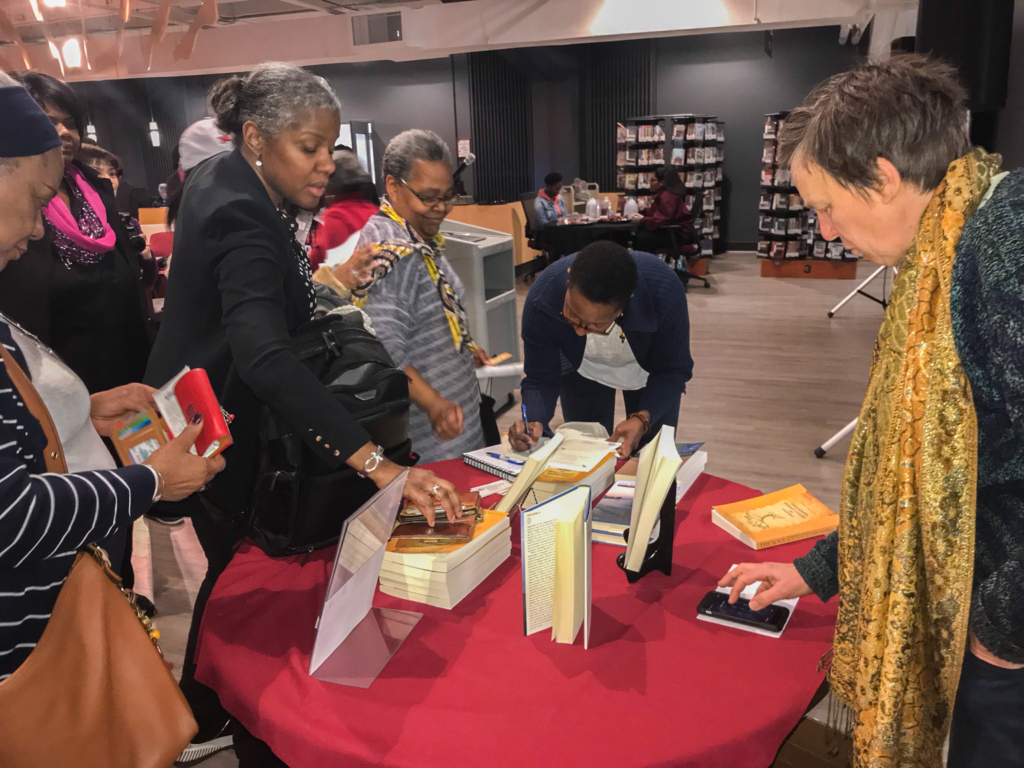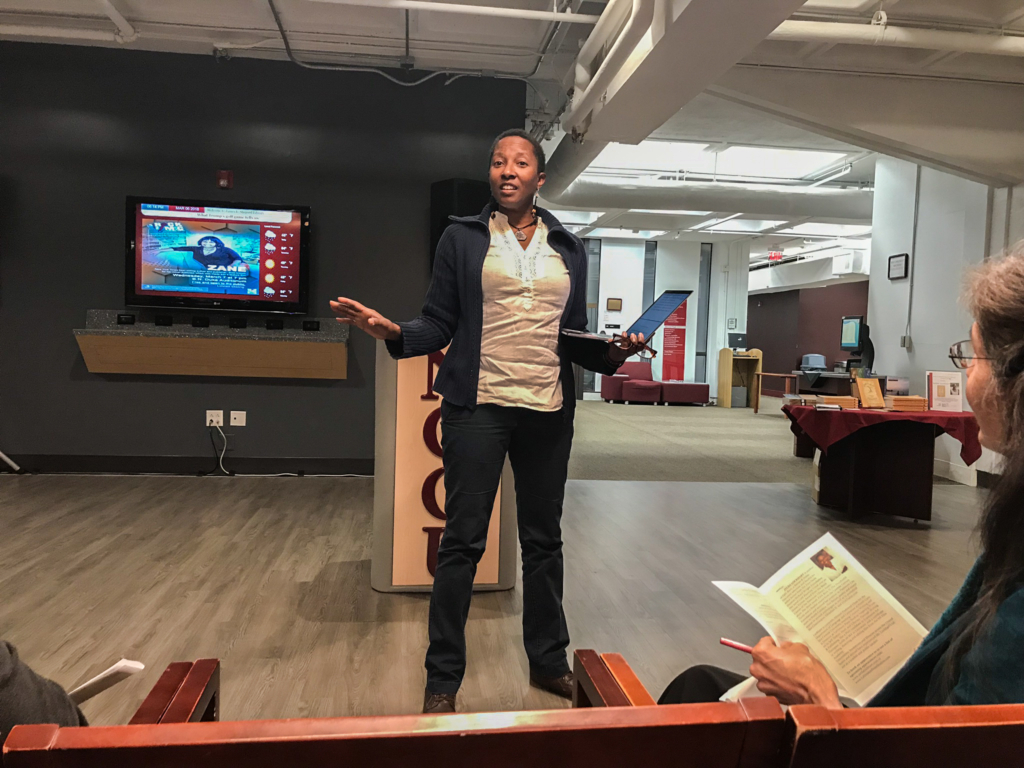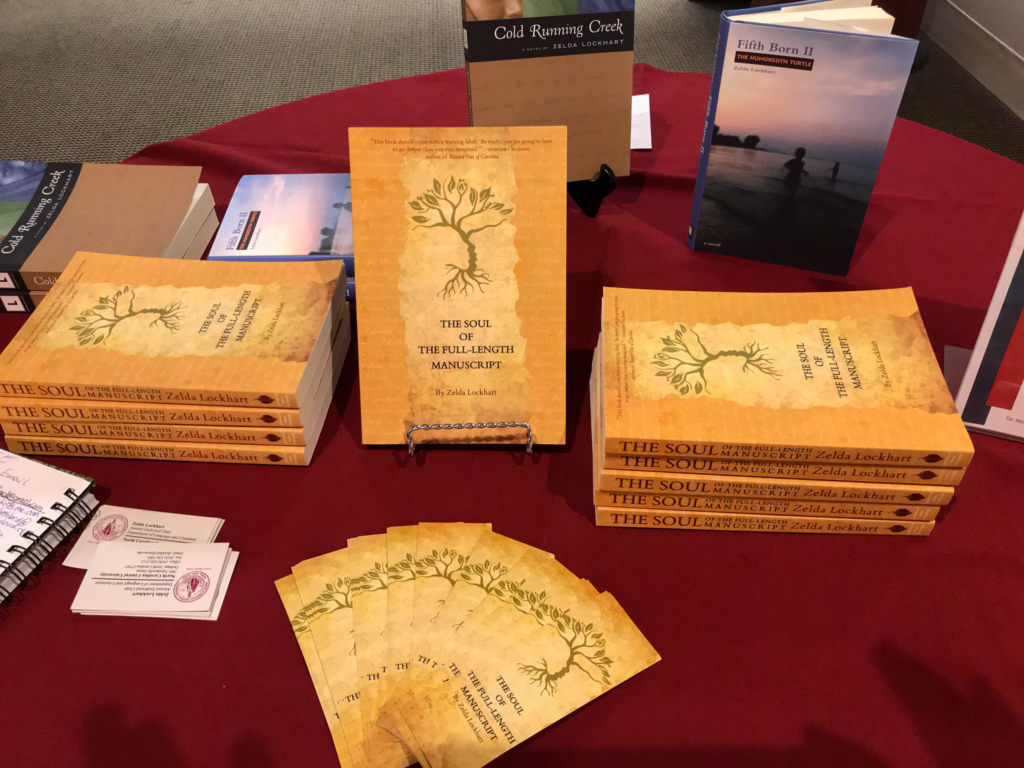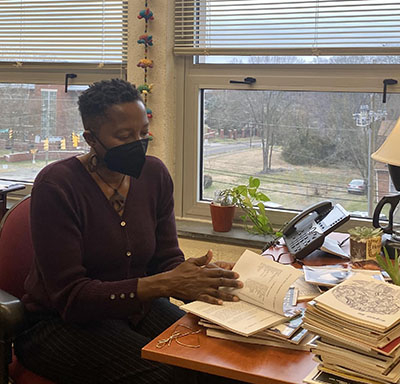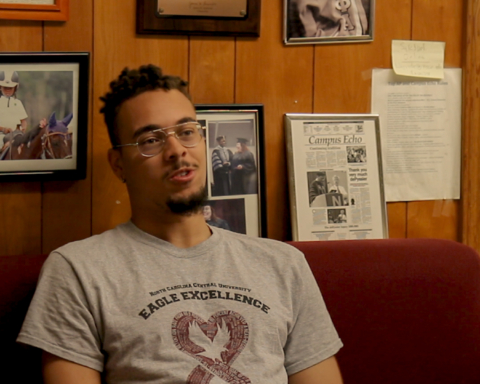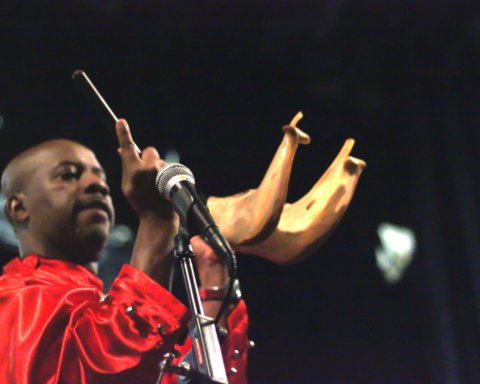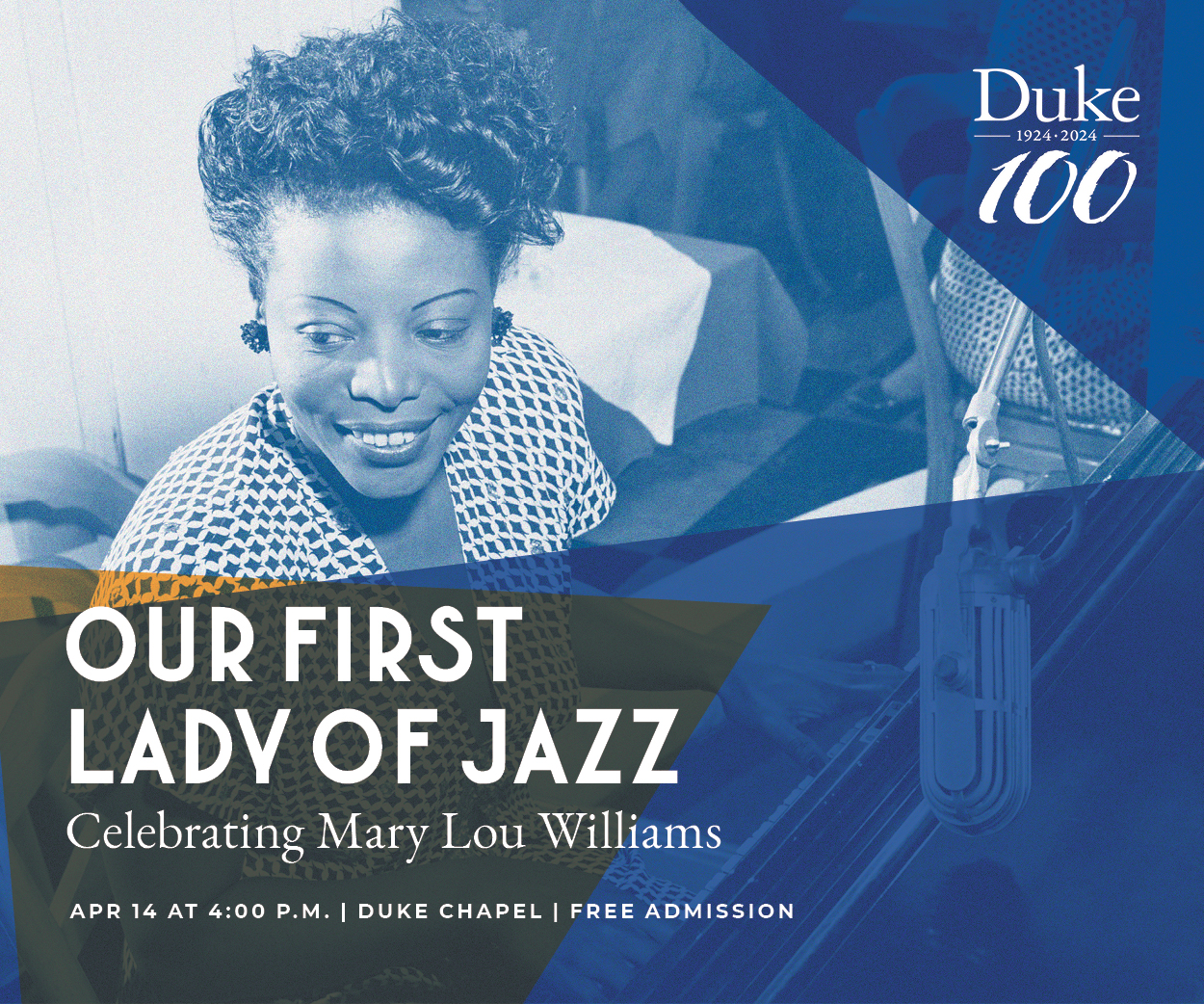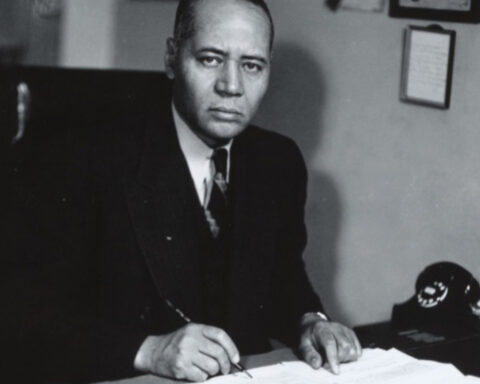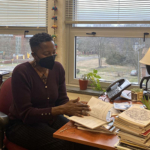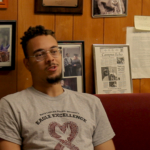Zelda Lockhart teaches aspiring authors how to “authenticate their call.”
“I was taught that art comes from a place of authenticity that people can connect with and answer back likewise,” she said.
Lockhart, an award-winning author and the N.C. Central University Alumni Endowed Chair in the Department of Language and Literature, said that she believes the point of art goes beyond the applause to connect with other human beings.
In her fourth and most recent book, “The Soul of the Full-Length Manuscript,” Lockhart aims to “take you on a journey of writing from wounding events in your life” and using those events as motivation to write. The series of writing exercises, made up of her own work and that of her peers, was developed to make sure the reader and future writer is not “truly alone” when practicing with them.
This, along with other elements of the book, were covered at an event in NCCU’s James E. Shepard Library on March 6. The event, held in the evening, allowed for an intimate atmosphere that let the chair reach out to attendees one-on-one.
Lockhart is big on introspective writing — she defines writing a manuscript as “sharing a human experience” that “call[s] you forward to take you to take all of you with you, all the time, every time you come to the page.”
On the other hand, Lockhart acknowledges the downsides of introspection in Chapter Three: “Spelunking and Internal Saboteurs.”
In that chapter, Lockhart suggests tethering oneself to something outside of your writing world by finding something that can ground you in the present like having dinner with friends.
She uses the term “spelunking” (a type of cave exploration) as a metaphor for exploring our emotional and psychological cave deeply and profoundly while still maintaining an attachment to the outside world.
“You have something you will do immediately afterward that is a reflection of treasured gifts of friends, nature [and] your favorite healthy spiritual rituals outside of the cave,” Lockhart explained.
She also addressed the concept of “internal saboteurs,” which is her name for the voices in our heads that give us reasons not to write. In her book, she tells the reader to “keep in mind that the voice is just a henchman for the ill voices of the past.”
Lockhart lists several types of saboteurs and how to combat them:
- The Neat-Freak Saboteur: “Doing chores you know will never get done as an excuse to not write.”
- The Sympathetic Saboteur (a.k.a. Lethargy Saboteur): “Pretend that something is chasing you.”
- The “I Don’t Have Time” Saboteur: “I find it funny when people walk up to me and say: ‘I envy you, because you have writing time.’ I’m writing a dissertation, I teach, I own a business, I have a teenager, a mortgage to pay and three and a half acres to somehow keep tamed. I have as much time as you do.”
- The Unworthy Saboteur: “You may have done some wrong, but telling the story of your pain is redemption.”
- The Mortal Fear Saboteur: “When people want others to do what they say, they present them with images and memories of death in the form of not being able to survive, provide for themselves, have shelter or other ways.”
- The Shame Saboteur: “If your writing is food, medicine or kinship for some unknown audience, then starving them of your work just because a handful of people might not like the taste, then you have done the universe a disservice.”
After the aforementioned subjects were covered, she segued into the discussion section of the event with a short writing exercise provided for the audience.
The exercise, a two-sided worksheet from the opening section of her book, is designed to assist with establishing relationships between different objects and aspects of one’s life. One side contained the exercise while the other provided lines of poetry to help the reader form original thoughts.
Everyone in attendance, Lockhart herself included, filled out the worksheet before switching with the person closest to them. Lockhart shared what was on her sheet: managing to form a relationship between silence and clay.
She shared the story of her oldest brother’s death and how she fell silent in the aftermath, not wanting to speak to anyone.
“I wanted to write, because that’s what I do, but that had gone silent [as well].” She said a friend, a sculptor who has since passed as well, once gave her a large block of clay. Lockhart said she was able to “make poetry” with that clay in a way she couldn’t (at that time) with words.
After sharing her exercise, a microphone was passed around and several audience members shared the connections they made with items like headphones and playing cards.
When mass communication senior Christina Boyd asked Lockhart about where the initial idea of her book came from, she reminisced about how she “rolled her neck” at her poetry teacher’s criticism of her writing and asked “That was some clever writing, but what’s the truth behind that?”
After time, Lockhart came to agree with the critique she recieved. “The best kind of writing happens when the truth emerges from it.”
You can purchase “The Soul of the Full-Length Manuscript” on Amazon.

